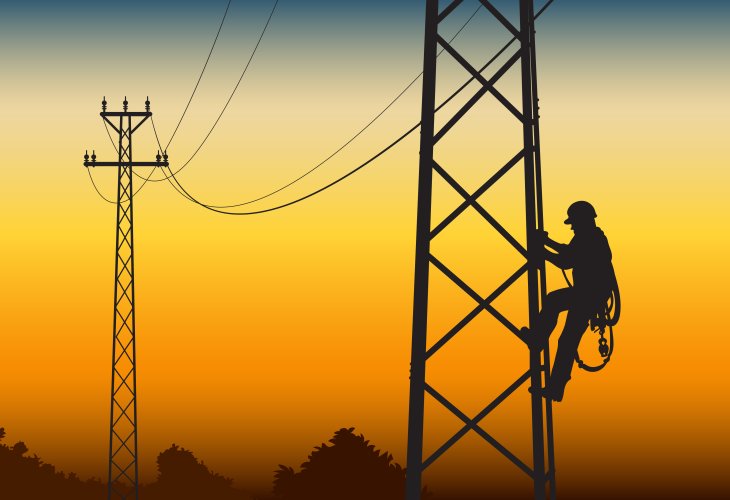Shabbat
When the Lights Went Out: A Friday Night Wake-Up Call
A neighborhood-wide blackout one minute after sunset sent a powerful spiritual message
 (Photo: shutterstock)
(Photo: shutterstock)The Lights Went Out and Something Clicked
The house was sparkling, the food was on the hotplate, and the fish patties (carefully prepared with parsley, cilantro, and crushed garlic this week) were ready and waiting. The candles were lit. Everything was in place for Shabbat.
I settled into the couch with a magazine, savoring the rare silence that follows the pre-Shabbat chaos. That deep breath, that feeling of peace—that’s what Shabbat is all about.
And then: boom. The power went out.
I rushed to the circuit breaker, heart pounding. The digital clock glared back at me: exactly sixty seconds past sunset. Shabbat had already begun.
Even if it was just a tripped breaker, there was nothing we could do at this point.
My husband went outside, only to discover we weren’t the only ones. The entire street had plunged into darkness.
Now, I don’t usually mind power outages. They can even be a charming change of pace. As a kid, they felt like mini-adventures. The flashlight hunts, the neighbors knocking: “Is it out at your place too?” But Shabbat is an entirely different story. Shabbat is sacred. It’s our day with Hashem. How could we spend it in the dark?
It was hard to ignore the timing. The power could’ve gone out any day, at any hour. But it happened on Shabbat. Not just on Shabbat. Exactly one minute after sunset. That’s not a coincidence. That’s a message.
And if the timing wasn’t enough, Hashem made sure we got the point.
When Even the Generator Fails
Our neighbors, a strictly observant family that gets electricity from a Shabbat-approved generator each week, came by and kindly offered to let us warm our food on their hotplate. They don’t use electricity from the main grid on Shabbat to avoid benefiting from any potential desecration of the day by utility workers.
It was a thoughtful offer, but Hashem had other plans.
An hour later, their power went out too.
“What happened?” I asked my husband.
“Human error,” he replied. “Their Shabbat timer was set incorrectly.” The neighbor had told him, only half-joking, “Apparently Hashem wanted us to join in the blackout too.”
In the three years we’ve lived here, their power has never failed on Shabbat. It was impossible to ignore the message. Hashem was speaking to all of us.
Later that evening, after Maariv, my husband turned to another neighbor, also without electricity, and asked, “I wonder why this happened…”
“What do you mean? A power pole caught fire,” the man said plainly.
“No, I mean the spiritual reason,” my husband responded.
Chazal teach us that nothing happens by chance. When challenges arise, we’re meant to look inward. I did a quick cheshbon hanefesh (personal reckoning). Our street is filled with families who observe Shabbat each week, so clearly this wasn’t about blatant Shabbat violations.
Maybe it was something subtler. Maybe it was about when we start Shabbat. Are we lighting candles at the last possible minute? Are we pushing preparations too close to the edge? Perhaps we’re skimping on kavod (honor) or oneg (delight) of Shabbat? Are there halachot (Jewish laws) we're being a little too casual with?
Each of us had to ask: Are we really giving Shabbat the reverence it deserves?
And for those wondering, “Why did observant Jews lose power while those who don't keep Shabbat enjoyed electricity all weekend long?” That, too, has an answer.
Hashem knows exactly whom to awaken. A person who doesn’t observe Shabbat likely won’t view a blackout as a Divine message. But someone who strives to live by Torah? They’ll pause. They’ll reflect. They’ll understand.
Hashem reaches out to everyone, yet those already tuned in to His frequency hear even the softest whispers. Others may need louder wake-up calls.
This Shabbat taught me that keeping Shabbat isn’t enough. Hashem wants us to connect to Shabbat, to honor it, cherish it, and prepare for it with devotion. Shabbat isn’t just another mitzvah. It’s the marriage contract between us and our Creator. It’s our weekly declaration of loyalty, of love. And sometimes, when the lights go out, it’s just Hashem reminding us to light the fire in our souls.

